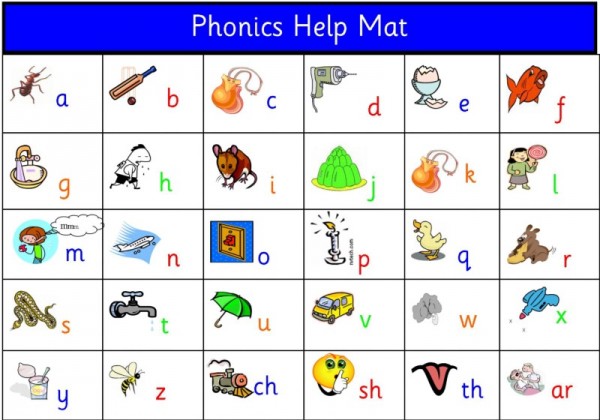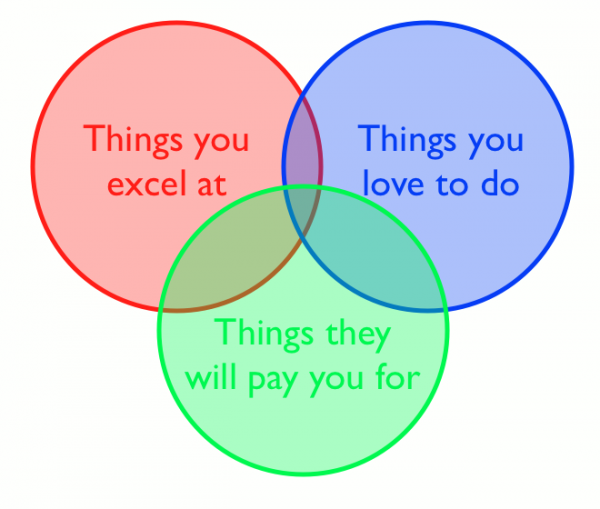“Quite frankly, teachers are the only profession that teach our children.” -Dan Quayle
It wasn't that long ago that I myself was a student, and of course over the past decade-and-a-half I've been very heavily involved in education -- both formally and informally -- at a huge variety of levels. And over time, education methods have not only changed, but they continue to change, not always necessarily for the better.
 Image credit: Quality Primary Resources, via http://www.qualityprimaryresources.co.uk/Phonics-Table-help-mat.
Image credit: Quality Primary Resources, via http://www.qualityprimaryresources.co.uk/Phonics-Table-help-mat.
Well, this week's Ask Ethan is all about one of the most basic skill sets we all develop: literacy. The way we teach basic language skills have changed dramatically over the past few decades, and continue to change.
The questions, of course, are is it changing for the worse, and what should we do about it?
On this week's Ask Ethan, we take a look at both the small and large pictures. Go read the whole thing.
- Log in to post comments


I didn't quite understand the battle raging between whole-word advocates and phonics advocates. I learned in a combination of both systems. I think that whole-word teaches spelling better, while phonics are exploratory and lead to the discovery of what learners *think* are new words only to sound them out and find words they knew. There is a sense of puzzle-solving to phonics.
Personally, I prefer 'whole of sentence' reading teaching. You don't read individual words. You read for meaning, in context. When I'm reading (either in German or English, particularly in German - because the important word, the verb, is often at the end of sentences), I often try to predict the next word over the page, which is unseen, and usually I'm right (or it's a very close synonym).
It has been a very long time. Perhaps I'm not as smart as I once was. But for the life of me I can't tell you what the letters: g, h, i, and n, o, p are supposed to represent.
I finally figured out that L is for lick and V might be for vehicle but Y still evades me. In the old days Y was usually for yo-yo, or , more rarely, Yogi bear.
I suppose the picture for N might be for 'not going to make it' but that strikes me as a bit grim for young children.
Art,
I think "v" is van, "y" is yogurt, and "o" is off. I'm with you on g, h, i, n and p, though.
Art & Sean: In some cases the sound indicated is not the initial letter of the word. Thus Z is "buzz" and N is "plane". P is presumably "lamp", although kids today wouldn't recognize that. O stands for both "on" and "off", the two settings on a switch. I think the intent for I was "mice", but they show only one and the singular is "mouse". For G and H, I'm not doing any better than you guys.
Phonics is helpful for deciphering unfamiliar languages, as long as you know the mapping between sounds and letters. That includes languages written with Latin letters, because sometimes the letters can have quite different mappings than in English. For example, I have observed G to represent the sounds /g/ and /j/ (hard and soft in English) as well as /zh/ (soft in French), /h/ or /kh/ ("soft" in Spanish), and even /y/ (soft in Swedish). English has an unusually high degree of inconsistency in mapping sounds to letters, though I have heard that Irish/Gaelic can be worse.
If one does have an honest interest in phonics, where letters and letter groups are said to represent speech sounds to a certain degree, I suggest getting into the appropriate readings in linguistics, phonology, sociolinguistics. For example, the history of English language is a evolving growth of numerous older, and possibly extinct, languages, which helps to explain some of the insanity of the so-called phonic rules. Over a long period of time, centuries, different words were adopted and adapted into English, some words with different spellings meaning the same thing and vice versa.
Another basis for confusion is that a strong language is one the is always changing to accommodate new speakers and life's changes. Languages that do not change at all may eventually die from non-use.
In short there are a bunch of foundational reasons why phonics and spelling are so crazy. The best one can do is to use tools as long as they tend to work for you, using phonics as long as it is helpful. Like many things, no single approach to teaching will help everyone 100 percent.
oran
Sean T @ #4 :
I think you nailed it on V and Y. Clearly, obviously, they are van and yogurt. Duh ... they even drew in the pulled back foil on the yogurt container and included a spoon, and if someone pulled up in a vehicle like that I would certainly call it a van.
Eric Lund @ #5:
Most likely you are right. Buzz and Lamp, with their clear sounds are likely what they were going for.
I had a poster with animals representing each and every letter^^, I was raised bilingual (German and English) and I must say, that I prefer learning to read with full words and sentences.
For young kids its beneficial to see a connection rather than giving them phonics first... it's like they can start doing more and trying to read by themselves rather than learning all the rules by heart first.
Actually I don't know how I got to this post of yours :D
I came from your ask Ethan #64 blog post on Expansion of the Universe and Matter...
I'm just getting into astrophysics now, although I'm studying genetics :D
Very fun to read!
Would appreciate a swing-by on my little science blog
www.thesciencystuff.blogspot.de